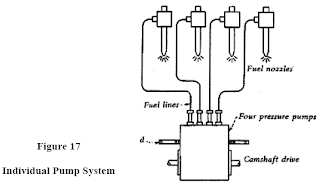How Does Centrifugal Pump Work (provided by 3d video)
A centrifugal pump is a pump rotodynamic in nature that employs the use of a driver turning to increase the pressure of a liquid. These are commonly used to move fluids through piping systems. The liquid enters the pump along a road near the shaft is rotating. After the entrance, its speed is fast by the impeller causing the fluid flowing in the outward direction. Upon entry into the glass and has an exit to downstream piping system, which is why these bombs are found to be of great help due to the fact that they make larger discharges through small head.
The inspiration for the centrifugal pump is believed to have originated from a water lifting machine that was invented by the Italian engineer Francesco di Giorgio Martini, in 1475, according to a Brazilian historian is believed to be the prototype of a pump applied centrifugal force. The first real centrifugal pump was invented in 1600 by Denis Papin. However, the vane pump Papin had straight rather than curved, and centrifugal pumps began to have curved fins not before 1851, presented by the British inventor John Appold.
A centrifugal pump functions by converting the driving force of kinetic energy, which is often the result of an electric motor or turbine rotation, higher static liquid pressure. Bernoullui first described this action. Turning the pump rotor, which imparts kinetic energy as fluid is drawn into the eye of the impeller and is forced outwards to the periphery. The fluid kinetic energy changes as it exits the impeller and is converted into static pressure due to change in the area of the experiences of fluid in the section of the volute. This static pressure occurs because the area experiences fluid in the spiral section is changed. One of the main factors for this is the spiral shape of the pump housing or pallets that are responsible for this conversion. The main objective is to reduce the diffused fluid speed and convert the kinetic energy in the workflow and, consequently, the pressure on the downstream side of the pump increases, causing flow.
Centrifugal pumps have their fair share of the problems, of course, such as erosion, corrosion, overheating due to low flow, leakage and overload, they need regular maintenance to me. The energy use of a centrifugal pump can be estimated fairly easily, depending on the required flow, the height lifted, and the total length of the pipeline.
the next video i have design it nearly that explain how pump work and how it's impeller rotate and convert the kinetic energy to pressure energy
The inspiration for the centrifugal pump is believed to have originated from a water lifting machine that was invented by the Italian engineer Francesco di Giorgio Martini, in 1475, according to a Brazilian historian is believed to be the prototype of a pump applied centrifugal force. The first real centrifugal pump was invented in 1600 by Denis Papin. However, the vane pump Papin had straight rather than curved, and centrifugal pumps began to have curved fins not before 1851, presented by the British inventor John Appold.
A centrifugal pump functions by converting the driving force of kinetic energy, which is often the result of an electric motor or turbine rotation, higher static liquid pressure. Bernoullui first described this action. Turning the pump rotor, which imparts kinetic energy as fluid is drawn into the eye of the impeller and is forced outwards to the periphery. The fluid kinetic energy changes as it exits the impeller and is converted into static pressure due to change in the area of the experiences of fluid in the section of the volute. This static pressure occurs because the area experiences fluid in the spiral section is changed. One of the main factors for this is the spiral shape of the pump housing or pallets that are responsible for this conversion. The main objective is to reduce the diffused fluid speed and convert the kinetic energy in the workflow and, consequently, the pressure on the downstream side of the pump increases, causing flow.
Centrifugal pumps have their fair share of the problems, of course, such as erosion, corrosion, overheating due to low flow, leakage and overload, they need regular maintenance to me. The energy use of a centrifugal pump can be estimated fairly easily, depending on the required flow, the height lifted, and the total length of the pipeline.
the next video i have design it nearly that explain how pump work and how it's impeller rotate and convert the kinetic energy to pressure energy



Comments